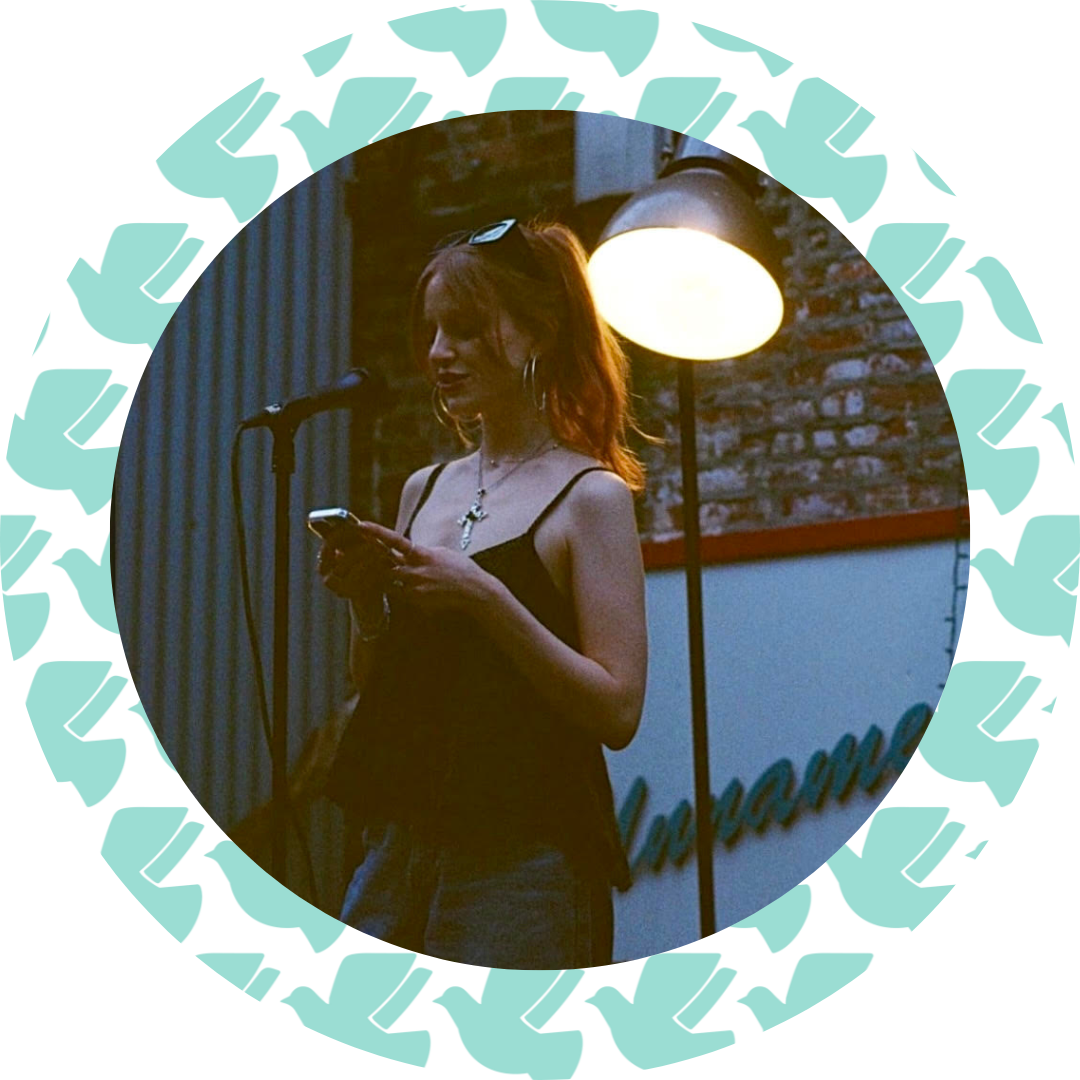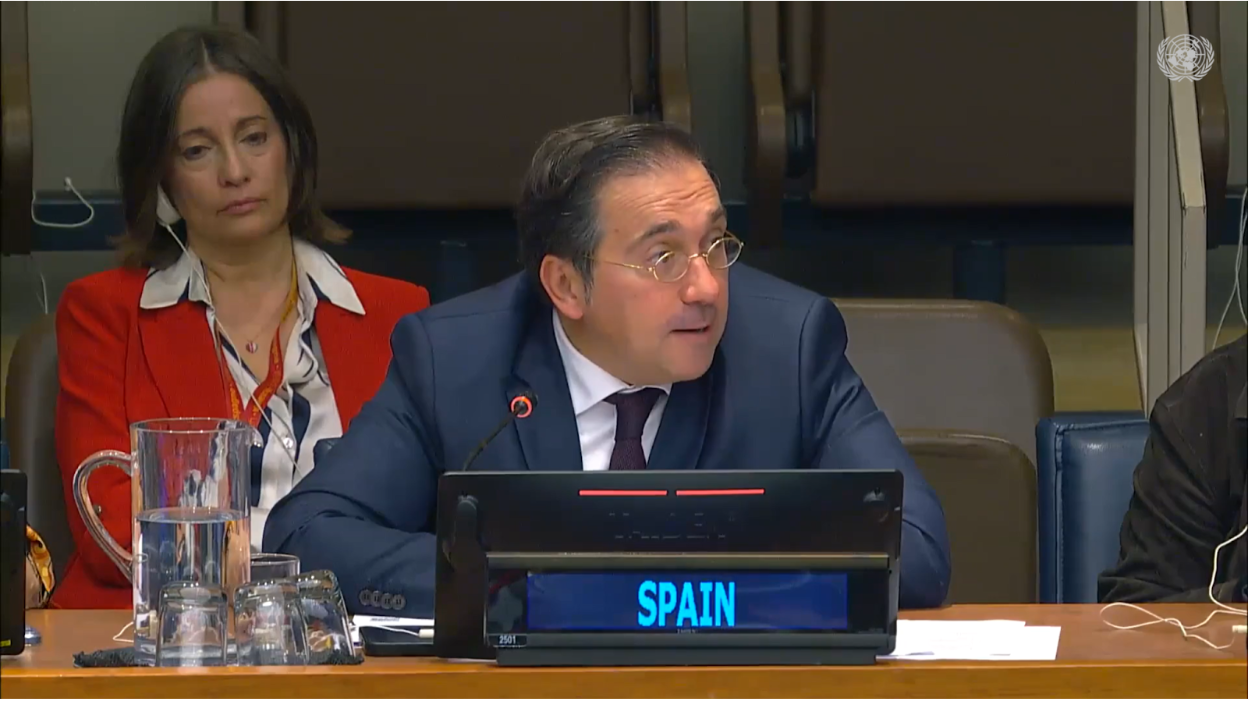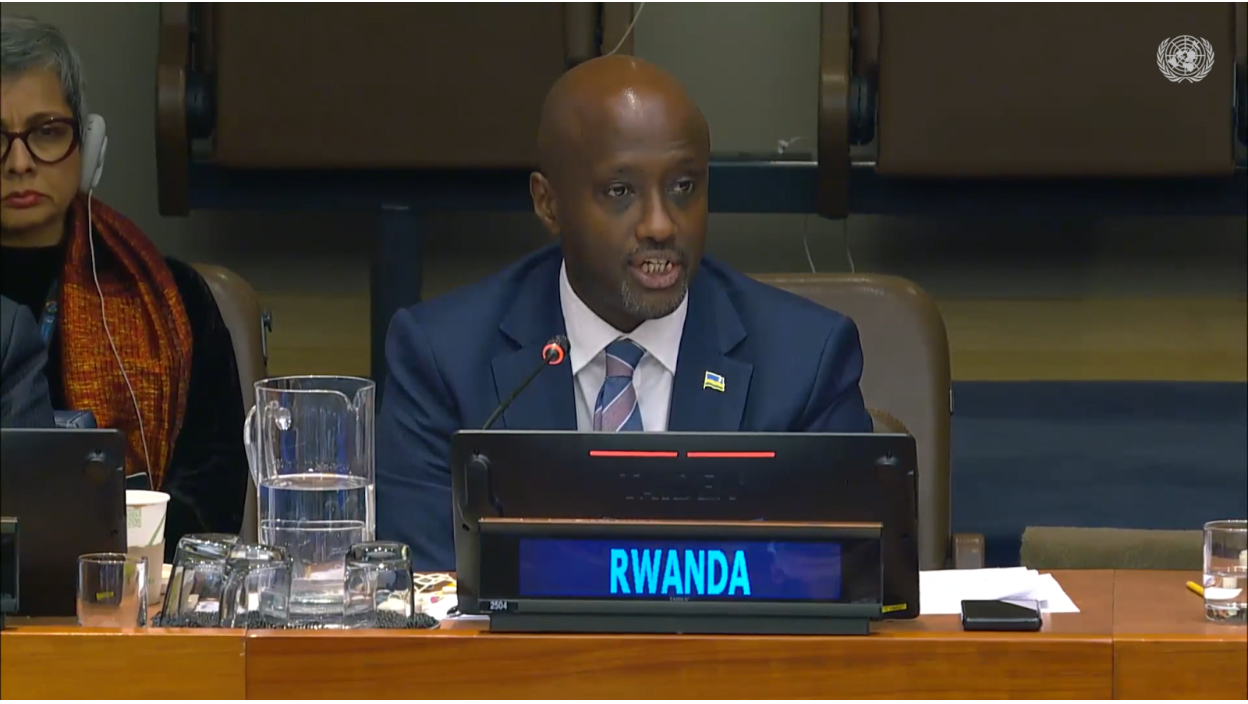
‘Our discussion on the importance of Feminist Foreign Policy comes at a critical time—just a few days ago, the Pact for the Future was adopted, and we urgently now need to move from ‘pact’ to ‘act’. The pact reiterates the importance of achieving gender equality and uplifting women’s empowerment and the participation of all women and girls—free from all forms of discrimination and violence, as highlighted in the Beijing Declaration and Platform for Action in 1995. Nearly three decades apart, and yet, this mission to guarantee equality continues to be relevant. While there is much progress to celebrate on gender equality, the reality is that we remain off track.’
This was the opening statement given by the Undersecretary General and Executive Director of UN Women, Sima Bahous, in her keynote address at the ‘Galvanizing the Pact for the Future for a Feminist Implementation of the 2030 Agenda’ event, held on the margins of the UNGA79 High-Level week, on 25 September 2024. The 2030 Agenda for Sustainable Development was adopted by all UN member states in 2015—a resolution that aims to achieve seventeen Sustainable Development Goals (SDGs) by 2030. On gender equality, SDG Number Five, the agenda promises to achieve gender equality and to empower all women and girls via multiple steps, including but not limited to, en.ding all forms of discrimination against women, all forms of violence against women and girls, ensuring access to reproductive health, and adopting and strengthening policies and legislation for the promotion of gender equality.

Undersecretary General and Executive Director of UN Women, Sima Bahous
Executive Director Bahous ended her speech by emphasizing the stark reality that could exist, should the world remain on its present track: ‘If we stay at the current pace, it will take 137 years to eradicate extreme poverty for women and girls. If left unaddressed, the digital gender divide could cost low and middle-income countries an estimated $500,000,000,000 in the next five years. If we fail to accelerate efforts, girls will continue to be married as children until 2092.’
The event saw Ministers of the Feminist Foreign Policy Group (FFP+) representing Spain, Mexico, Chile, Rwanda, France, and Mongolia meet for the third time in this context, to renew and strengthen their political commitments to feminist foreign policy. It consisted of three panels—two ministerial sessions, followed by a civil society panel. Speakers were asked to concentrate on two areas within the Gender Equality Agenda. First, the full equal, and meaningful participation and leadership of women in decision-making processes, that is, ensuring that women have an active voice and leadership in the role to foster inclusive and equitable policies. Second, the elimination of sexual and gender-based violence, including in digital environments—a growing issue discussed widely at UNGA79.
WOMEN IN DECISION-MAKING
The need for women in decision-making roles was one emphasized by every speaker and is a point outlined clearly in the 2030 Agenda. Our current reality, however, does not yet reflect this. In 2023, women held only 26.9% of seats in parliaments and made up just 35.5% of seats in local governments, and glaringly, women made up less than 10% of all speakers at UNGA79.
Nicole Ameline, former Member of Parliament and Vice-Chair of the UN Committee on the Elimination of Discrimination against Women (CEDAW) stressed the need for a global agenda for parity by 2030, and CEDAW’s new general recommendation on the equal and inclusive representation of women in all decision-making systems, which it will be adopting in October, outlines innovative guidance for implementing one. Ameline stated that parity is ‘a starting point—a principle enshrined in the constitutional and legislative framework.’

H. E. José Manuel Albares Bueno, Minister of Foreign Affairs, the European Union and Cooperation of Spain
H. E. José Manuel Albares Bueno, Minister of Foreign Affairs, the European Union and Cooperation of Spain, began by acknowledging the honor of co-chairing the FFP+ this year, as the representative of the Global North, alongside Mexico, the representative of the Global South. H. E. went on to outline Spain’s commitment: ‘My government has made it a priority to accelerate the full, equal, and meaningful representation of women in public life, and also in the private sector… A society in which 50% of the population is excluded or underrepresented cannot advance towards social justice and economic progress.’ In a recent action that realizes this commitment, Spain passed the Organic Law, which aims to address the underrepresentation of women in decision-making and representative positions. It came into effect on 22 August 2024.
H.E. Olivier Nduhungirehe, First Minister of Foreign Affairs and International Cooperation of the Republic of Rwanda similarly provided examples of actions that Rwanda has taken to ensure that women are accurately represented in both public and private spheres. H.E. emphasized that, following the devasting effects of the 1994 Rwandan genocide against the Tutsi, specifically those felt by women and girls, Rwanda made a conscious choice to place women at the center of the country’s transformation. Today, over 60% of Rwanda’s parliament is comprised of women. Additionally, gender equality is embedded in the Rwandan constitution, with provisions ensuring gender representation.
Representing Mexico, the first country in the global south to adopt a feminist foreign policy in 2020, H.E. Teresa Mercado, Deputy Minister of Foreign Affairs of Mexico, drew attention to the fact that, seventy-nine years after the formation of the UN, a woman has never been elected to hold the position of Secretary General, and on only four occasions has a woman chaired the General Assembly—a reminder of the lengths still to go within the organization itself. The benefits of women being in decision-making positions are copious and profound. UN Women studies demonstrate that when women participate in peace negotiations, there is a 35% increase in the probability that treaties will last more than fifteen years.
ELIMINATING SEXUAL AND GENDER-BASED VIOLENCE
A central component of the 2030 Agenda is to ‘eliminate all forms of violence against all women and girls in the public and private spheres, including trafficking and sexual and other types of exploitation.’
H.E. Olivier Nduhungirehe explicitly acknowledged the online violence and harassment that women and girls are subjected to in today’s digital world. This issue has been at the forefront of current discussions. New challenges and obstacles have presented themselves since the creation of the 2030 Agenda in 2015, and the urgent need for policy to remain up-to-date with ever-evolving technology is palpable. H.E. stated that Rwanda has taken proactive measures to foster a gender-inclusive digital space, and stressed that, through the Action Coalition of Technology & Innovation, a platform co-led by Rwanda, Armenia, Chile, Tunisia, Finland, and other partners, Rwanda is working to ensure digital literacy and informed access to technology.

H.E. Olivier Nduhungirehe, First Minister of Foreign Affairs and International Cooperation of the Republic of Rwanda
In the final civil society panel, Founder & CEO of of Feminist Foreign Policy Collaborative, Lyric Thompson, highlighted current, ongoing situations in which women are suffering: ‘I don’t need to remind us that we gather here amidst ongoing death and destruction, and an escalating and expanding conflict in the Middle East, hard right electoral victories from the Americas to Europe, and as famine and rape are deployed as tools of the protracted war in Sudan.’ Widespread and systematic rape in conflict is now recogised as a crime against humanity, and a war crime. However, it largely goes unpunished.
Next year will mark the thirtieth anniversary of the Beijing Declaration, a progressive blueprint for advancing women’s rights, which saw the UN adopt a variety of principles concerning gender equality. Since then, progress has undoubtedly been made, yet—as acknowledged by all of the speakers—there remains a long way to go before reaching the goals outlined in the 2030 Agenda. This event saw a focused discussion on women in decision-making spaces and roles, and touched on the issue of tackling sexual and gender-based violence. Messages delivered were ones of renewed commitment to achieve a better future for women and girls across the globe. As H.E. Alberto van Klaveren Stork, Minister of Foreign Affairs of Chile, reminded us, ‘Even though we are far from achieving gender equality, we must be proud of the collective work that has been carried out… Faced with the current challenges, when we see new trends that are threatening the rights of women, it is essential to strengthen our commitment.’

